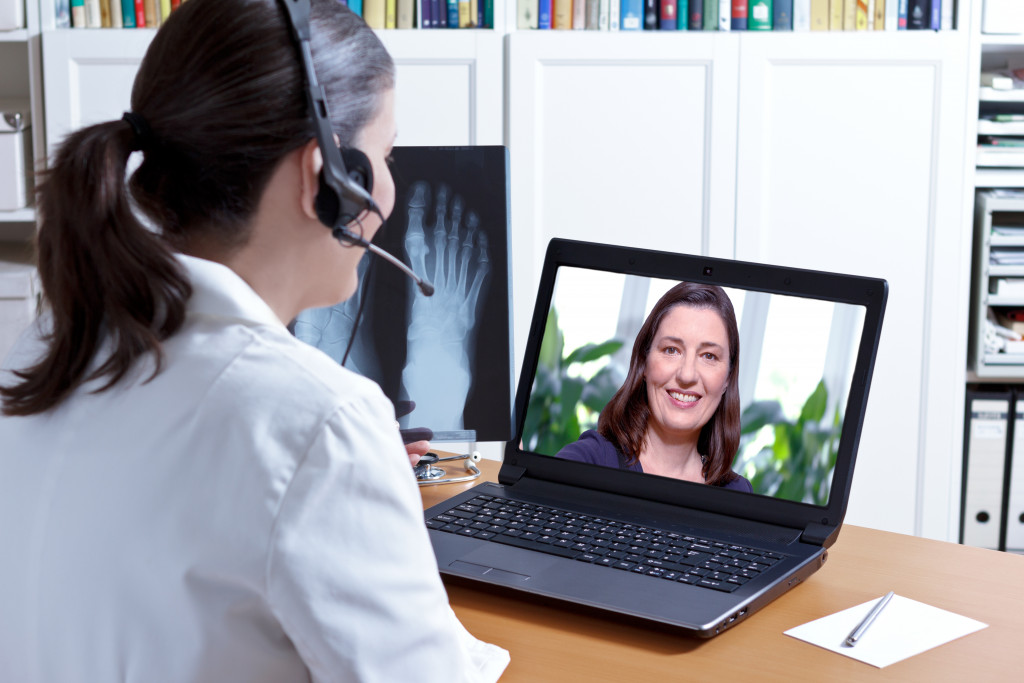Disclaimer: This website provides health information for educational purposes only and is not a substitute for professional medical advice, diagnosis, or treatment. Always seek the guidance of a qualified healthcare provider with any questions you may have.
The digital transformation of the world is inevitable. It’s already happening, and it’s only becoming more ubiquitous in the years to come. Many infrastructures in various countries are transforming digitally, including how we do business, learn, and communicate.
The rise of digital transformation is being driven by two significant factors: the ubiquity of technology and the need for speed. Technology is becoming more and more commonplace in our everyday lives. We use it to stay connected with our friends and family, get work done, and keep up with the news. But, at the same time, we live in a constantly changing and evolving world. As a result, we need to adapt quickly to new situations and challenges.
Digital transformation can help us meet these challenges by making people more agile and responsive. This is one of the prime reasons why many industries are transforming digitally.
One remarkable transition comes from the medical industry. The medical industry has been known to be slow in adopting new technology. However, this is changing as the medical industry realizes the potential of digital transformation. There are now many startups focusing on bringing innovative technologies to the medical industry. These startups use digital transformation to create new ways to diagnose and treat diseases, improve patient care, and make the medical industry more efficient. Here’s how the industry is doing it.

Digital ways to diagnose and treat diseases
The medical industry is benefiting from digital transformation in many ways. The most apparent benefit is creating new ways to diagnose and treat diseases.
Artificial Technology
For example, startups are developing new ways to use data and artificial intelligence to diagnose diseases earlier and accurately. They are also creating new treatments that are more personalized and targeted to the individual patient. This results in better outcomes for patients and fewer side effects.
AI such as IBM Watson made a huge mark in history by diagnosing people with cancer accurately. Although the technology was scrapped to a certain extent due to various complications, many are still looking into using it in the medical field.
Telehealth
Another area where digital transformation is making a significant impact is in the area of telehealth.
The field of telemedicine is estimated to reach $300 billion by 2030, making it one of the central beacons of the digital transformation of the medical industry. Telehealth uses telecommunications and information technologies to provide medical care from a distance. It allows patients to consult with doctors and other healthcare professionals without traveling to a hospital or clinic.
This is particularly beneficial for people who live in rural areas or have difficulty traveling. It can also save time and money for both patients and healthcare providers. As a result, telehealth is becoming more and more popular as it becomes more accessible and affordable.
Digital transformation is also helping to make the medical industry more efficient. Startups are developing new ways to manage patient data, streamline clinical trials, and improve supply chain management. This results in lower costs and faster turnaround times.
Improving patient care
Digital transformation is also helping to improve patient care. One of the main ways this is happening is through mobile apps.
Mobile apps
Mobile apps allow patients to track their health data and symptoms. This can help them understand their health better and be more proactive in their care. It can also help them to communicate with their doctors more effectively.
There are now many mobile apps that are specifically designed for healthcare purposes. These apps can do everything from tracking blood pressure to helping people quit smoking. As a result, they are becoming an increasingly important part of the patient’s care regime.
Marketing
Digital transformation is also helping to improve how the medical industry communicates with patients. Marketing and communication are becoming more targeted and personalized. This results in better engagement with patients and improved outcomes.
One of the main ways this is happening is through social media. Social media platforms such as Facebook, Twitter, and Instagram allow healthcare providers to communicate directly with patients. They can share information about new treatments, post videos of surgery procedures, and answer patient questions.
Other forms of marketing, such as content marketing, are making ripples. Video production services are earning a lot more in the medical industry than before because of the rise in content marketing. This is thanks to the digital transformation that the field is experiencing right now.
Information Dissemination
Digital transformation is also making it easier for doctors to share information with one another through the Cloud and other digital information dissemination services. This is helping to improve the coordination of care and the quality of patient care. Doctors are now able to access patient records from anywhere in the world, which is helping to reduce the number of medical errors.
Moreover, chatbots are making it easier for patients’ questions to get answered. HealthTap’s “Concierge” is one example of a chatbot that provides answers to common medical questions.
The medical industry is still in the early stages of digital transformation. However, it is clear that the industry is already benefiting from the new technologies and approaches that are being developed. The benefits are likely to increase as the technology continues to evolve.

